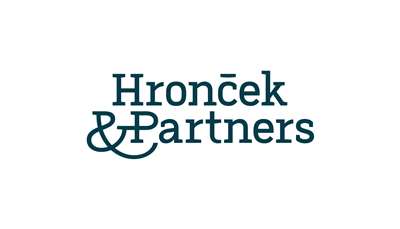In the third article from our law firm on the topic of the amendment to the Labor Code, we will take a closer look at the institution of paternity leave. On October 4, 2022, the National Council of the Slovak Republic approved a bill amending and supplementing Act No. 311/2001 Coll. Labor Code, as amended, and amending and supplementing certain acts. The amendment introduces numerous and significant changes to the Labor Code, affecting several rights and obligations of employers when establishing, changing, and terminating employment relationships. The changes will also affect the posting of employees, work performed under agreements outside of employment relationships, and introduce a new institution of paternity leave. As part of the supplementary proposals during the legislative process, an amendment was also proposed to the right of a trade union operating at an employer to approach an employee in an appropriate manner to offer them membership. The originally intended date of entry into force of the amendment (October 1, 2022) has been postponed, and the amended version of the Labor Code will enter into force on November 1, 2022. We are also preparing a free webinar on the amendment to the Labor Code on November 30, 2022—information can be found at the end of this article.

In order to promote a more equal sharing of childcare between women and men and to eliminate gender stereotypes, the European Union is fighting against the lack of paid paternity and parental leave. In accordance with European Union law, the current version of the Labor Code already recognizes the institution of paternity leave, although it does not refer to it directly. However, this fact is not widely known and repeatedly gives rise to demands for the introduction of paternity leave into the Labor Code, even though it is already provided for in the Labor Code in terms of content. The legislator is responding to this linguistic shortcoming in the current legal provisions of the Labor Code by introducing the term "paternity leave."
Pursuant to Section 166(1) 1, in connection with the care of a newborn child, a man is entitled to paternity leave of 28 weeks from the date of the child's birth, a single man is entitled to 31 weeks, and in connection with the care of two or more newborn children, 37 weeks.
Maternity leave in connection with childbirth may not be shorter than 14 weeks and may not end or be interrupted before the expiry of six weeks from the date of childbirth. Currently, the father of a child can only claim sickness insurance benefits – maternity benefits – after six weeks following the birth, i.e. when the mother of the child stops receiving maternity benefits.
In order to enable fathers to bond with their children at an early age, the amendment introduces the possibility for both the father and mother of the child to receive maternity benefits concurrently for two weeks within the six-week period following the birth of the child.
The conditions for the father to receive maternity benefits are:
- care for the child
- sickness insurance for at least 270 days in the last two years prior to the date on which the maternity allowance is applied for
The European Union and our legislature recognize that the birth of a child is one of the most beautiful moments in the life of parents, and the new legislation allows parents of newborns to experience this period together as a family. The aim of this legislation is to promote a better work-life balance.
From the date of entry into force of the amended Labor Code, fathers will be able to divide their maternity leave entitlement into two periods, which means that fathers will not receive two additional weeks of leave, but their current entitlement will be divided into separate entitlements. During the first six weeks after the birth of a child, fathers may request two weeks of paternity leave, with the remaining portion of paternity leave (26 weeks) to be taken at a later date.
Of course, dividing paternity leave into two periods is not mandatory. As before, fathers will be able to take paternity leave in one go. The amendment to the Labor Code does not ultimately grant fathers two additional weeks of paternity leave, but only allows it to be divided into two periods.
The right to paternity leave belongs not only to the biological father of the child, but also to a man who has taken the child into his care on the basis of a court decision on the placement of the child in substitute parental care, such as a foster parent or adoptive parent.
Under the current legislation, an employer may terminate the employment of a pregnant woman, a mother until the end of the ninth month after childbirth, and a breastfeeding woman during the probationary period only in writing, in exceptional cases that are not related to her pregnancy or motherhood, and must provide appropriate written justification, otherwise the termination is invalid. The amendment to the Labor Code proposes to extend protection against immediate termination of employment during the probationary period and to grant comparable protection to men who take paternity leave.
Finally, we would like to emphasize that if an employee returns to work after the end of an important personal obstacle to work, which includes paternity leave, the employer is obliged to assign him to his original job and workplace. If it is not possible to assign the employee to their original job and workplace, the employer is obliged to assign the employee to another job corresponding to their employment contract. The employer is obliged to assign the employee under conditions that are no less favorable than those he had at the time when the important personal obstacle to work arose, and the employee is entitled to benefit from any improvement in working conditions to which he would have been entitled if this important personal obstacle to work had not arisen.
Our team of experts in the field of labor law guarantees the provision of effective legal services. If you need advice or assistance with any issue in the field of labor law, please do not hesitate to contact us. The law firm Hronček & Partners, s. r. o. is at your disposal.
Webinar - Amendment to the Labor Code and GDPR
This webinar will cover:
1/ The most significant changes to the Labor Code after the major amendment (2022-2023)
(changes in the legal regulation of the establishment, change and termination of employment, agreements on work performed outside of employment, new obligations of employers, changes in the posting of employees and the introduction of paternity leave).
2/ Labor relations in the context of the GDPR
(HR processes in the processing of personal data, purposes and legal bases for the processing of personal data, issues of consent and legal aspects of the control mechanism in the workplace).
At the end of the webinar, participants will be able to ask the speakers questions.
When: November 30, 2022, at 9:00 a.m.
Where: Online via the Webex platform
Speakers: Mgr. Andrea Domény (Hronček & Partners), Mgr. Anna Kopkášová (Hronček & Partners), Barbora Plavcová Gombárska (Top privacy)
Price: free
The webinar is organized by Hronček & Partners, s. r. o. and Top privacy s.r.o.
Participation in the webinar is free of charge and limited to a certain number of participants.
Register for the webinar to get an overview of the amendment to the Labor Code and the GDPR and take advantage of the opportunity to ask any questions you may have in these areas.
You can register now using our form. Join the event on LinkedIn or Facebook and don't miss any news about the webinar. We look forward to seeing you there!
